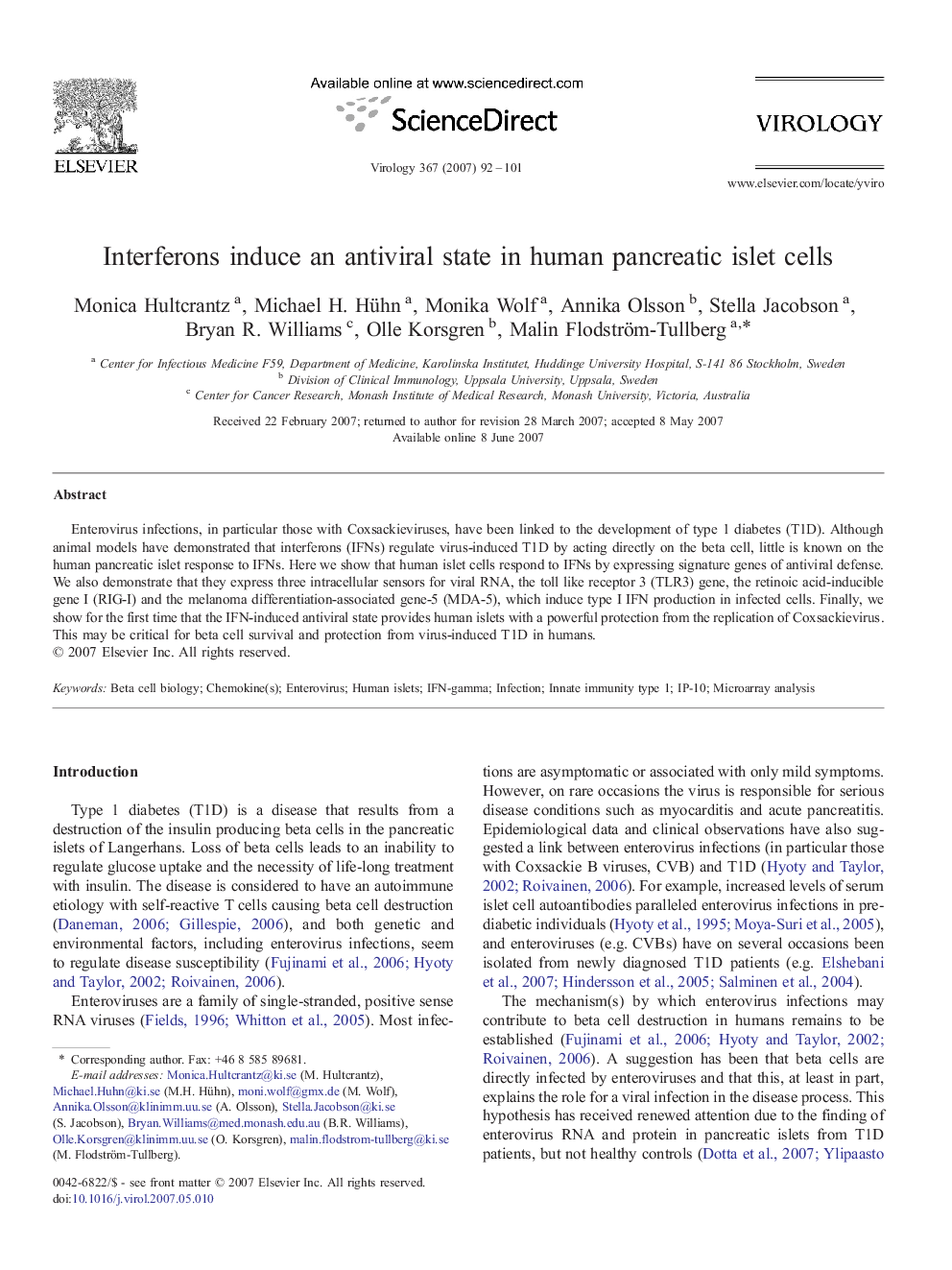| Article ID | Journal | Published Year | Pages | File Type |
|---|---|---|---|---|
| 3426597 | Virology | 2007 | 10 Pages |
Enterovirus infections, in particular those with Coxsackieviruses, have been linked to the development of type 1 diabetes (T1D). Although animal models have demonstrated that interferons (IFNs) regulate virus-induced T1D by acting directly on the beta cell, little is known on the human pancreatic islet response to IFNs. Here we show that human islet cells respond to IFNs by expressing signature genes of antiviral defense. We also demonstrate that they express three intracellular sensors for viral RNA, the toll like receptor 3 (TLR3) gene, the retinoic acid-inducible gene I (RIG-I) and the melanoma differentiation-associated gene-5 (MDA-5), which induce type I IFN production in infected cells. Finally, we show for the first time that the IFN-induced antiviral state provides human islets with a powerful protection from the replication of Coxsackievirus. This may be critical for beta cell survival and protection from virus-induced T1D in humans.
